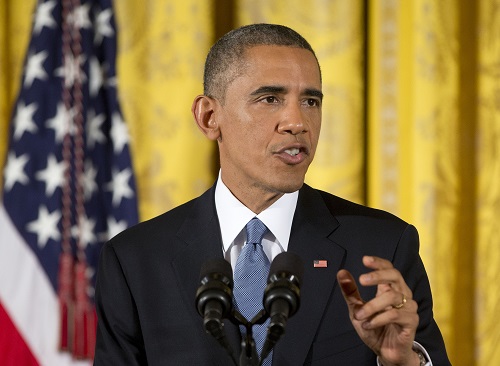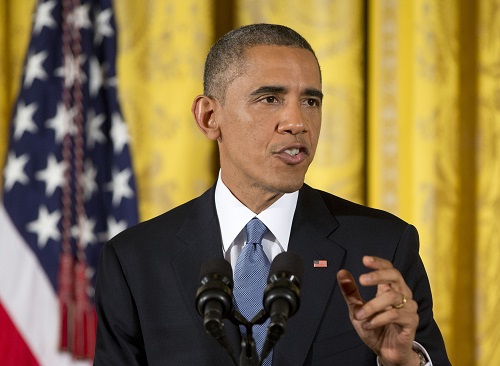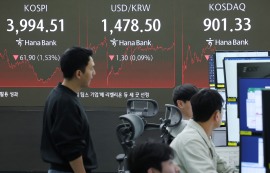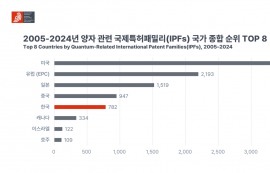 이미지 확대보기
이미지 확대보기그는 "규정은 반드시 케이블 회사나 통신업체 그 어느 쪽도 당신이 무엇을 하고 볼 수 있는지에 대해 제한을 두는 문지기 역할을 하지 못하도록 보장해야 한다"고 말했다.
그러기 위해서 그는 소비자 광대역을 공익사업으로 구분하는 것을 제안하였고 – 통신 사업이나 당신의 집으로 전기를 공급하는 업체와 같은 공익사업에 포함된다 ― 이는 연방통신위원회가 서비스 질과 관련하여 명확하게 법률 보호를 박탈할 수 있게 할 것이다.
이론상으로 이는 이치에 맞는 것이다. 미국의 경제와 사회에서 데이터 통신망의 중요성은 과장할 필요도 없다. 멋대로 할 수 있게 내버려 두면 인터넷 접속을 통제하는 일부 업체들은 온라인상으로 미국에서 접할 수 있는 정보를 결정할 수 있는 막강한 권력을 가지게 될 것이다.
시민단체인 'Public Knowledge'의 대표 진 키멜레만에게 정말 중요한 것은 미국 민주주의 못지않다. 그는 1992년에 미국 소비자연합회에서 케이블 산업을 재조정하고 시장에 새로운 인공위성 경쟁자들이 들어서도록 허락하는 법안을 통과시켰던 것을 기억하고 있다.
그는 "나에게는 자금이 충분한 인공위성 제공 업체가 있었다"며 "그들의 광고를 내주려는 케이블 회사는 없었다"고 말했다. 어떤 정보들이 그들의 통신망을 통해 방송될 수 있는지 자유롭게 결정할 수 있었던 통신망 제공업체들은 그들의 정치적 선호도에서도 비슷하게 그들의 권력을 행사할 수 있었다.
실제로는 까다롭지만 통신 중립성이 다루고자 했던 보다 평범한 문제는 비용이다. 통신망 제공업체들이 콘텐츠 제공자들의 속도나 서비스 단계에 따라 다르게 가격을 측정하도록 해야 하는 것일까.
소비자 단체들과 'Public Knowledge'와 같은 언론자유 지지자들은 이것이 인터넷을 '가진 자들'(영화를 빨리 보기위해 돈을 지불하는 재벌 회사)이나 '없는 자들'(혼잡하고 달팽이같이 느린 줄로 밀려난 자들) 사이에서 분열될 수 있는 확실한 방법이라고 주장하고 있다.
이러한 우려는 절대 가볍게 일축하면 안 된다. 코흐 형제가 보수적인 공화당원을 취임시키기 위해 수천만을 쓰는 세상에서 키멜레만씨의 정치적 두려움은 설득력이 없다.
중립적인 인터넷의 가장 충실한 옹호자들에 의해 나타나는 위협은 빠른 시일 내에 위험성을 보일 만큼 아직 심각해 보이지 않고 그들은 전통적인 규제의 수용을 전면적으로 촉구하지도 않고 있다.
정치적 지출은 아마 최고치를 기록했을 것이다. 하지만, 국가의 통신망 골리앗은 사실 온라인상에서의 언론을 억압하는 데 권력을 휘두른 적은 없다. 그리고 그들의 통신망을 이용해서 공화당원의 청을 들어줌으로써 민주당 소비자들이 떨어져나가게 하는 등의 행동을 하기 전에 먼저 한번 더 생각해 볼 것이다.
더군다나 언론에 대한 위협은 차단이나 합법적인 콘텐츠 억압을 간단하게 금지시킴으로써 다루어질 수 있다.
가격의 위협은 한층 더 모호하다. 회사들은 항상 차별적인 가격 책정에 관여하고 있고 통신망 업체들은 허가만 된다면 같은 입장을 고수할 것이다. 하지만 이는 대개 소비자들에게 좋은 서비스를 제공한다.
정보기술혁신 재단의 대표인 로버트 앳킨슨은 스카이프와 같이 정확한 시간과 순서로 목적지에 도달해야하는 서비스가 그들의 요구를 비교적 낮은 정확도를 요구하는 이메일보다 우선시하기 위해 인터넷 서비스 제공업체들에게 돈을 지불하는 것은 이치에 맞는 것이라고 언급했다.
혹은 더 많은 고객을 모으기 위해 데이터 캡에서 음악 서비스를 제외하기로 한 T-모바일을 생각해 보라. 기업이 후원받는 콘텐츠를 소비자에게 무선으로 무료 제공할 수 있게 하는 기술을 가진 신토닉은 실제 저소득층의 소비자들에게까지 허용 접속 범위를 확장시키고 있다.
앳킨슨은 "이런 형태의 차별은 다른 통신에 거의 영향을 주지 않는다. 그리고 이미 초당 10 메가비트(Mbps)의 평균속도로 우선순위화를 위한 시장은 사람들이 생각하는 것보다 훨씬 작을 것이다"라고 말했다.
지금까지, 가장 주목할 만한 유료 우선순위화의 예로 넷플릭스가 컴캐스트, 타임워너 케이블, AT&T, 그리고 버라이존에게 그들을 통해 넷플릭스의 방송이 순조롭게 전파를 탈 수 있도록 확실히 하기 위해 돈을 지불한 경우를 들 수 있다. 넷플릭스는 통신망 제공업체들이 돈을 받기위해 방송을 지연시키고 있다고 비난했고 보다 엄격한 통신 중립 규정을 강력히 지지한다고 밝혔다. 컴캐스트는 넷플릭스에게 요금을 청구하거나 모든 고객에게 짐을 나누어 부담하게 요구할 수도 있다. 그들의 선택이 부당하다고 할 수는 없다.
"나는 한때 통신법 '타이틀 II'로 광대역 서비스를 공익사업으로 재분류하는 것을 강력히 지지했다" 라고 대통령은 현재 말하고 있다. 언론의 자유에 대한 위협과 광대역 경제의 측면에서 콘텐츠에 관한 혁신은 엄격한 관리가 충분히 타당해 보인다.
하지만 가장 끔찍한 상황은 아직 오지 않았다. 절대 오지 않을 것이라 확정지을 수 없지만 이는 그 규제가 다른 중대한 목표를 – 인터넷 접속 대상 범위를 넓히고 국가의 현실적인 정보 격차를 무너뜨리는 등 - 위험에 빠뜨리지 않는 간단한 방법으로 이루어 질 수 있을 것이라 제안하고 있다.
브루킹스 연구소의 로버트 리탄과 진보 정책 연구소의 할 싱어가 올해 출판한 보고서는 "인터넷 생태계 전반에 걸쳐 이루어진 투자액 전체를 극대화할 수 있는 정책을 고르라"고 권하고 있다.
오바마 대통령은 연방통신위원회가 법이 요구하는 것보다 가볍게 '타이틀 II'를 적용하여 가격 규제를 그만두어야 한다고 제안했다. 하지만 다른 항목은 동일하게 적용시켜도 된다. 리탄과 싱어는 광대역 기업들이 가격분리 요구가 없어질 때까지 어떻게 '가격차별'을 형성하고 통신망 용량을 경쟁업체가 어떻게 임대하여 수년간의 투자를 방해하였는지 윤곽을 그리고 있다.
마지막으로 '타이틀 II'는 어쩔 수 없이 가격 책정의 차별을 금하지는 않을 것이다. 이는 그저 '부당하고 불합리한 차별'만을 금할 것이고 정보가 관심 있는 모든 사람에게 동일한 조건으로 제공되게 할 것이다. 리탄은 이것이 어떤 의미를 갖는지 결정짓는 것은 끝없는 논쟁을 초래할 만한, 그리고 정치적 무게가 실린 절차로 이어질 수 있다고 언급했다.
미국은 불완전한 인터넷을 가지고 있다. 유선 통신업에는 경쟁률이 낮고 이는 대부분 케이블 회사와 보다 질 떨어지는 DSL 접속을 제공하는 전기 통신업체들에 한정되어 있다. 합병은 참가업체의 수를 점점 줄이고 있다. 대부분의 다른 국가에서 더 높은 우수성을 보이는 이동통신 광대역은 고정된 고속 통신망에서는 아직 실질적인 경쟁자가 못 된다.
가장 빠른 광대역을 제공하는 케이블 회사는 그들의 사업을 지키기 위해 경쟁업체에서 오는 콘텐츠로부터 차별화를 두려는 명확한 동기가 있다. 그리고 NBC와 같은 방송국과의 협력은 차별화된 처우에 관한 위험성을 증가시킨다.
하지만 이러한 결점은 인터넷에서 제공되는 콘텐츠나 전화선을 통해 흐르는 소리를 규제함으로써 해결되지는 못할 것이다. 부당한 차별은 가장 중요한 목표를 위험에 빠뜨리지 않는 방법으로 큰 비용을 들이지 않고 멈추어질 수 있다. 인터넷 접속을 모든 미국인들에게 확장시킨다.
오바마 대통령은 "미국인들과 인터넷을 이어주는 통신 업체들이 가정이나 기업체 사이의 인터넷 접속을 놓고 누리는 독점권을 부당하게 이용하지 말아야하는 특별한 의무가 있다"고 말했다. 이는 지극히 옳은 말이다.
더 많은 경쟁의 부재에서 이는 관리 담당자에 의해 관찰되어야 한다. 하지만 여기서의 관찰은 가능한 최저 비용으로 이루어져야 한다.
/ 뉴욕 타임스 원문
Net Neutrality Debate: Internet Access and Costs Are Top Issues
On Monday, President Obama urged the Federal Communications Commission to set stringent net neutrality rules to ensure the free flow of content on the information superhighway.
The regulations, he said, should ensure that “neither the cable company nor the phone company will be able to act as a gatekeeper, restricting what you can do or see online.” To do so, he suggested classifying consumer broadband as a public utility — like telephone service or the company that delivers electricity to your home — allowing the F.C.C. to set precise proscriptions covering quality of service.
In principle, this makes sense. It is hard to overstate the importance of broadband to America’s economy and society. Free to do as they pleased, the clutch of companies that control access to the Internet would have enormous power to determine what information reaches Americans online.
But would the cure be worse than the disease, entangling the Internet in an endless fight over regulation and perhaps slowing investment in one of the nation’s most vital services? To some extent, it depends on how you view the threat.
For Gene Kimmelman, president of the advocacy group Public Knowledge, what’s at stake is no less than American democracy. He can remember 1992, when he was at the Consumer Federation of America pushing a bill that would re-regulate the cable industry and allow new satellite competitors into the market.
“I had well-funded satellite providers on my side,” he told me. “There was no cable company that would take their ads.” Left free to decide which content flowed through their pipes, broadband providers could similarly deploy their power in the service of their political preferences.
The more prosaic — though actually trickier — issue net neutrality is meant to address is about price. Should broadband providers be allowed to charge providers of content differentially for different speeds or tiers of services
Consumer groups and free speech advocates like Public Knowledge argue this is a surefire way to split the Internet into “haves” — deep-pocketed companies that would pay to have their movies delivered at blistering speed — and “have-nots” that would be relegated to a congested, snail-paced lane.
The smart kid with the clever new idea would no longer be able to compete with the zippy websites of established players in the fast lane. The Internet would lose its garage-based engine of creativity.
These concerns shouldn’t be lightly dismissed. In a world where the Koch brothers will spend tens of millions to install conservative Republicans in office, Mr. Kimmelman’s political fears are not far-fetched.
Still, the threats articulated by the staunchest defenders of a neutral Internet do not quite amount to an imminent danger, nor do they necessarily call for an all-out embrace of traditional regulation.
Political spending might be at record highs. But the nation’s broadband Goliaths have not, in fact, been using their might to throttle speech online. And they are likely to think twice before, say, alienating Democratic consumers by using their pipes to favor Republican causes.
What’s more, the threat to speech is the most easily addressed, via a straightforward ban against blocking or throttling legal content.
The pricing threat is even more nebulous. Companies engage in differential pricing all the time, and broadband providers would surely do so if allowed. But that often serves consumers well.
Robert Atkinson, the president of the Information Technology Innovation Foundation, noted that it would make sense for services like Skype, which needs its bits to arrive at their destination in a tight, precise sequence, to pay Internet service providers to prioritize their calls over email that doesn’t require such careful timing.
Or think of, say, T-Mobile offering to exclude music services from its data cap in order to attract more consumers. Syntonic, whose technology allows companies to provide sponsored content to customers free over wireless carriers, is in fact broadening access by low-income consumers.
These forms of discrimination hardly affect other traffic. And with average speeds already around 10 megabits per second, notes Mr. Atkinson, “the market for prioritization is going to be a lot smaller than people think.”
To date, the most notable instance of anything resembling paid prioritization is Netflix’s payment to Comcast, Time Warner Cable, AT&T and Verizon to ensure its shows flowed smoothly on their pipes. Netflix accused the broadband providers of slowing its content on purpose to get paid and strongly supports tougher net neutrality rules. Still, the charge looks like a not unreasonable congestion fee to cover the added costs of handling its voluminous traffic. Comcast could either charge Netflix or require all its consumers to shoulder the burden. Its choice is hardly unreasonable.
I once supported reclassifying broadband as a public utility under Title II of the Telecommunications Act, as the president is now proposing. The threat to free speech and innovation on the content side of the broadband economy seemed plausible enough to warrant a heavy hand.
So far, however, the most awful situations have not come to pass. While this does not ensure they never will, it suggests that restraint can be achieved through lighter means that do not put at risk other crucial objectives — like broadening access to the Internet and tackling the nation’s very real digital divide.
A report published this year by Robert Litan of the Brookings Institution and Hal Singer of the Progressive Policy Institute recommends “pick the policy that maximizes total investment across the entire Internet ecosystem.”
President Obama suggested the F.C.C. should apply Title II more lightly than the law provides for, refraining from regulating prices. But other provisions could be equally chilling. Mr. Litan and Mr. Singer outlined how the requirement that broadband companies “unbundle” and lease capacity on their pipes to competitors hamstrung investment for years until the unbundling requirement was dropped.
And, in the end, Title II would not necessarily ban differentiated pricing. It would just make it available to all comers on the same terms, banning only “unjust or unreasonable discrimination.” Mr. Litan noted that determining what this means could lead to endless, contentious and politically charged proceedings.
The United States has an imperfect Internet. There is little competition in wired broadband, limited mostly to a cable company and a telecom carrier offering less powerful DSL access. Consolidation is shrinking the number of players further. And mobile broadband, while more advanced than in most other countries, is not yet a real competitor for fast fixed broadband.
The cable companies that provide most fast broadband have a clear motivation to discriminate against content from rival sources to protect their business model. And their combination with programmers like NBC increases the risk of discriminatory treatment.
But these shortcomings won’t be fixed by regulating the flow of content on the Internet like electricity through the wires or voices traveling down a phone line. Stopping unreasonable discrimination can be done at a lower cost, on a case-by-case basis that does not imperil perhaps the most important objective of all: extending the Internet to all Americans.
President Obama is right when he argues that the broadband companies connecting Americans to the Internet “have special obligations not to exploit the monopoly they enjoy over access in and out of your home or business.”
In the absence of more competition, this will have to be monitored by regulators. But the monitoring should be performed at the least possible cost.










































